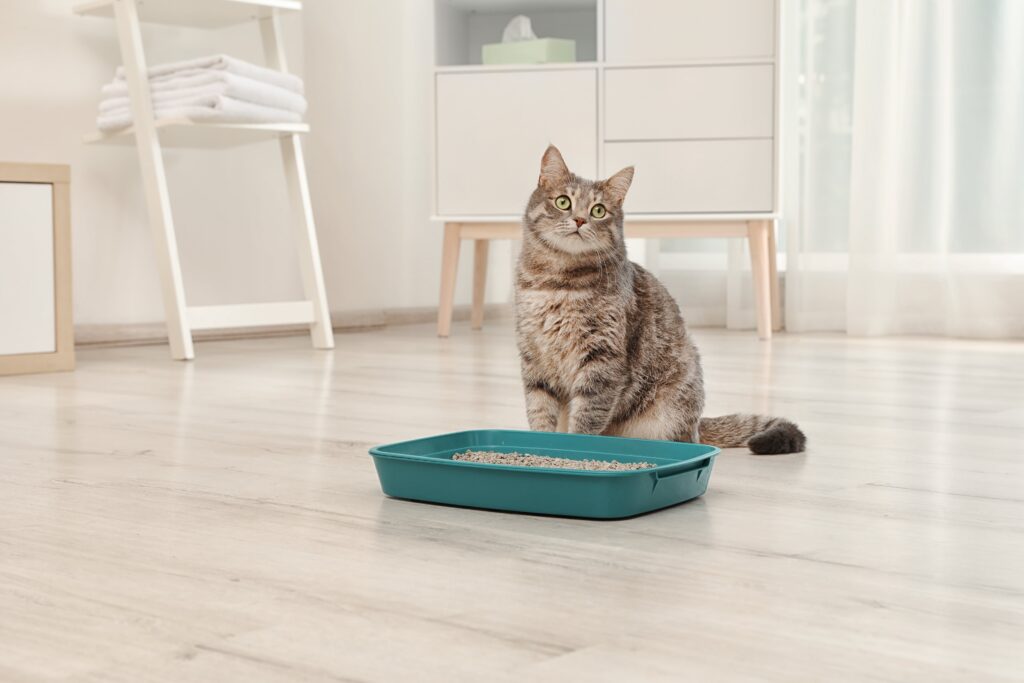Urinary Blockage in Cats: What All Cat Owners Should Know

Urinary blockages are a serious medical concern that can quickly become life-threatening to your feline companion. Our dedicated team at Trail Pet Hospital may recommend a perineal urethrostomy or PU surgery for male cats to provide prompt relief and prevent future blockages. Here’s what you need to know about urinary blockages and how to keep your cat healthy and comfortable.
Understanding Urinary Blockages
A urinary blockage can develop when the urethra, the tube that carries urine from your cat’s bladder to the outside of the body, becomes obstructed. This condition is more common in male cats due to their narrower urethras, which can be easily blocked by stones, crystals, blood clots, tumors, or debris. Urinary blockages can prevent your cat from urinating, leading to a dangerous buildup of toxins in the body that can result in kidney failure, sepsis, and even death.
Identifying the Signs of Urinary Blockages
Tell-tale signs of urinary blockages include frequent attempts to urinate with little to no output. As the urine continues to enter the bladder but cannot be expelled, it can cause severe and noticeable discomfort. Toxic waste buildup can result in loss of appetite, vomiting, disorientation, lethargy, and collapse. Other signs of blockages may include frequent urination in small amounts, discolored or bloody urine, urinating outside the litterbox, or crying or vocalizing due to discomfort.
If you notice any of these symptoms, it is critical to seek immediate veterinary care. A urinary blockage is a serious medical emergency requiring prompt treatment.
What Is Perineal Urethrostomy Surgery?
Perineal urethrostomy is a surgical procedure we may recommend for a male cat with a urinary blockage that cannot be managed or resolved with medical treatment alone. The PU procedure is performed under general anesthesia for your cat’s comfort. It involves widening the opening of the urethra, the thin tube that carries the urine from the bladder to the outside of the body, to allow blockages to pass. Perineal urethrostomy can help reduce the risk of future blockages, although there are no guarantees your furry companion will never get an obstruction again.
What Can You Expect After Surgery?
We will provide you with post-operative instructions to promote healing and recovery. Prepare a calm area for your cat to rest and recover away from other pets or distractions. Provide warm, comfortable bedding and easy access to food and fresh water.
Your cat will need litter that won’t stick to the incision during recovery. Keep in mind that it’s perfectly normal to have bloody urine for a few days. Accidents are also likely to occur until your cat is used to the new function of the urethra, so if you have a tiled area for recovery, it will be much easier to keep clean.
Your furry companion will need to wear a cone (e-collar) to prevent licking or biting of the surgical site, which can interfere with healing. It is critical that you keep the collar on as recommended, usually for about two weeks. If you have any questions or concerns in the days following surgery, make sure to let us know.
How Can You Prevent Urinary Blockages?
While some cats are more prone to urinary blockages, there are things you can do to lower the risk. Make sure to provide access to fresh, clean water to maintain adequate hydration, which helps maintain healthy urine flow. It’s also important to provide a healthy, balanced diet and avoid offering table scraps. You may also want to consider supplements or a specially formulated diet to promote urinary health.
Other ways to support your pet are maintaining regular exercise, minimizing stress, and ensuring litter boxes are clean and readily accessible. Don’t forget to visit Trail Pet Hospital for routine wellness checks. Our team will monitor your cat’s health and treat any problems as they surface, preventing any minor issues from progressing and requiring invasive treatments down the road.
Urinary Blockage Treatment Near Me in Dallas, TX
At Trail Pet Hospital, we are committed to providing exceptional care for your furry companions. If you suspect your cat has a urinary blockage, don’t wait. Contact us for immediate care. Dr. Suh will evaluate your cat’s concerns and recommend the best treatment option for long-term relief. We invite you to call us at 972-629-9766 to schedule your pet’s appointment or request one online today!
